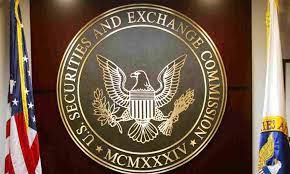The chair of the United States’ Securities and Exchange Commission (SEC), Gary Gensler, on Monday urged financial regulators toquickly find a way to manage potential risks posed by the concentration of power in artificial intelligence (AI) platforms to global financial system stability.
Gensler warned that without swift intervention, it would become “nearly unavoidable” that AI would trigger a global financial crisis within the next
The Financial Times quoted Gensler as saying that shaping AI regulation will pose a tough test for US regulators, as potential risks cut across financial markets and stem from models crafted by tech companies that sit outside the remit of Wall Street watchdogs.
The investment expert said: “There is a lot of concentration of power in these few AI platforms. If one of these platforms were to fail or be hacked, it could have a systemic impact on the financial system.
“It’s frankly a hard challenge. It’s a hard financial stability issue to address because most of our regulation is about individual institutions, individual banks, individual money market funds, individual brokers; it’s just like what we do. And this is about a horizontal [matter whereby] many institutions might be relying on the same underlying base model or underlying data aggregator”, the SEC chair added.
According to him, even if current measures were updated, “it still doesn’t get to this horizontal issue, if everybody’s relying on a base model and the base model is sitting not at the broker-dealer, but it’s sitting at one of the big tech companies.”
Gensler further queried that how many cloud providers, which tend to offer AI as a service, have the US now, adding that he has raised the point at the Financial Stability Board as well as at the Financial Stability Oversight Council during which he described it as a cross-regulatory challenge.
Gensler’s comments are coming as AI is increasingly being used in the financial sector for tasks such as fraud detection, risk assessment, and investment management just as regulators globally are grappling with how to police AI, as tech groups and their models are not naturally captured by specific watchdogs.
Earlier in July, the SEC proposed a rule addressing potential conflicts of interest in predictive data analytics, but it focused on individual models deployed by broker-dealers and investment advisers.
As part of the efforts to regulate AI, the EU has drafted tough measures over the use of AI in a groundbreaking law that is set to be fully approved by the end of the year.
The US, however, is reviewing the technology to determine which aspects of it require new regulation and what is subject to existing laws.
Despite these efforts, Gensler is concerned that parties basing decisions on the same data model may lead to herd behaviour that would undermine financial stability and unleash the next crisis.
He expatiated: “I do think we will in the future have a financial crisis, and in the after-action reports people will say ‘Aha! There was either one data aggregator or one model, we’ve relied on’. Maybe it’s in the mortgage market. Maybe it’s in some sector of the equity market.”
While stressing that AI’s powerful “economics of networks” makes it “nearly unavoidable” the SEC chair predicted that a crisis could happen as soon as the late 2020s or early 2030s.




